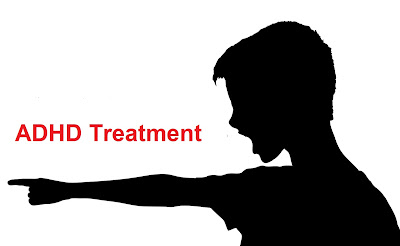ADHD (Attention Deficit Hyperactivity Disorder) is a behavioral disorder that leads to hyperactivity and attention deficit. Contrary to what many people think, they do not necessarily have to be treated with medication. Parents and other adults sometimes react rather short-sighted: "Give that child just what Rilatine and let it keep quiet ..." But children do not always keep quiet and that does not necessarily mean that they have ADHD. A balanced treatment of the behavioral disorder tries to approach the behavior of the child as positively as possible: a more active child needs more structure and other challenges. Below you can read more about the possible treatments for attention deficit hyperactivity disorder (ADHD).
Social skills training and parent training
Social skills training is focused on teaching communication and interaction techniques. For example, the child with ADHD learns how to enter into relationships with others in day-to-day relationships.
Parent training, on the other hand, can help parents to better deal with a child who gives ADHD. They learn how they can better structure the environment of the child and how they can show the child positive behavior at home (and elsewhere) with behavioral techniques.
Behavioral techniques
Children with ADHD need a highly structured environment. Chaos exacerbates their symptoms. Many children with attention deficit hyperactivity disorder (ADHD) respond very well to reward systems, in which you connect clear consequences with positive and negative forms of behavior. You must reward positive behaviors so that they occur more often. There are consequences to negative behaviors that must ensure that the behavior occurs less frequently. Note, punishment does not always help. The lack of a reward is often a clearer signal.
Coaching and therapy
Today, ADHD coaches exist that help parents and children structuring and organizing their environment. They work out a step-by-step plan with them and teach children skills so that they can function independently later and solve problems.
Therapy focuses less on changing the concrete behavior, but can help people to place ADHD in their lives and to be more positive about it. After all, people with ADHD are more likely than others to deal with bad relationships, broken friendships and a very low self-esteem. This comes on top of the actual behavioral disorder, making the whole sometimes difficult to work.
Social skills training and parent training
Social skills training is focused on teaching communication and interaction techniques. For example, the child with ADHD learns how to enter into relationships with others in day-to-day relationships.
Parent training, on the other hand, can help parents to better deal with a child who gives ADHD. They learn how they can better structure the environment of the child and how they can show the child positive behavior at home (and elsewhere) with behavioral techniques.
Behavioral techniques
Children with ADHD need a highly structured environment. Chaos exacerbates their symptoms. Many children with attention deficit hyperactivity disorder (ADHD) respond very well to reward systems, in which you connect clear consequences with positive and negative forms of behavior. You must reward positive behaviors so that they occur more often. There are consequences to negative behaviors that must ensure that the behavior occurs less frequently. Note, punishment does not always help. The lack of a reward is often a clearer signal.
Coaching and therapy
Today, ADHD coaches exist that help parents and children structuring and organizing their environment. They work out a step-by-step plan with them and teach children skills so that they can function independently later and solve problems.
Therapy focuses less on changing the concrete behavior, but can help people to place ADHD in their lives and to be more positive about it. After all, people with ADHD are more likely than others to deal with bad relationships, broken friendships and a very low self-esteem. This comes on top of the actual behavioral disorder, making the whole sometimes difficult to work.

